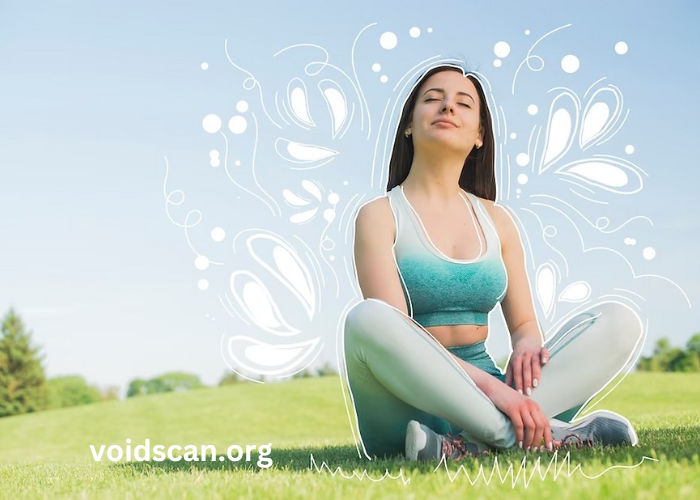
In the hustle and bustle of modern life, finding balance and wellness can often feel like a daunting task. The constant demands of work, family, social obligations, and technology can leave us feeling overwhelmed, disconnected, and stressed. This is where mindful living comes in—a practice that encourages being present, aware, and intentional in every aspect of our lives.
Mindful living is a concept rooted in mindfulness, which involves paying full attention to the present moment without judgment. It promotes living with awareness and intention, making it a powerful tool for managing stress, improving mental clarity, and enhancing overall well-being. In this article, we’ll explore how adopting a mindful approach to daily living can help you achieve balance, reduce anxiety, and foster wellness in your everyday life.
1. What is Mindful Living?
Mindful living is the practice of engaging fully in the present moment and making deliberate choices that promote mental, emotional, and physical well-being. It’s about slowing down and appreciating the present, instead of rushing through life or dwelling on the past. By integrating mindfulness into daily activities—whether at work, home, or in social settings—you can develop a deeper awareness of your thoughts, feelings, and behaviors.
Mindful living encourages individuals to be more intentional with their actions and decisions, allowing them to live with purpose and focus. This lifestyle helps reduce distractions, improve emotional regulation, and enhance personal growth.
2. The Benefits of Mindful Living
Incorporating mindfulness into daily life can have a profound impact on overall health and well-being. The benefits of mindful living are numerous and touch every aspect of life, including:
- Reduced Stress: Mindfulness helps regulate the body’s stress response, reducing anxiety and tension.
- Improved Mental Clarity: Being present improves focus and decision-making skills.
- Better Emotional Health: Practicing mindfulness helps to manage emotions, promoting emotional resilience.
- Enhanced Physical Health: Mindfulness has been linked to lower blood pressure, improved sleep, and a stronger immune system.
- Stronger Relationships: Mindful communication fosters empathy, understanding, and connection in relationships.
By cultivating mindfulness, individuals can create a foundation for a balanced, healthier lifestyle.
3. How to Incorporate Mindfulness into Your Daily Routine
Incorporating mindfulness into your daily routine doesn’t require major changes to your lifestyle. It’s about making small adjustments that allow you to be more present and intentional. Here are some practical steps to integrate mindfulness into your day:
- Start with short meditation sessions: Dedicate 5-10 minutes each morning to meditate, focusing on your breath.
- Practice mindful eating: Slow down during meals, savor each bite, and pay attention to the flavors, textures, and smells of your food.
- Engage in mindful walking: While walking, pay attention to the sensation of your feet touching the ground and the environment around you.
- Practice deep breathing: Take a few deep breaths when you feel stressed or overwhelmed to center yourself.
By taking small, consistent actions, you can gradually incorporate mindfulness into your routine, reaping the benefits of a more intentional life.
4. The Power of Self-Awareness
At the heart of mindful living lies self-awareness—the ability to recognize and understand your thoughts, emotions, and behaviors. Self-awareness allows you to identify patterns in your actions and reactions, empowering you to make healthier choices.
To cultivate self-awareness:
- Observe your thoughts: Take a step back and observe your thoughts without judgment. This can help you identify unhelpful thought patterns.
- Reflect on your emotions: Pay attention to how you feel and where these emotions stem from.
- Practice non-reactivity: Instead of reacting impulsively to situations, pause and respond thoughtfully.
Self-awareness is essential for mindful living because it helps you stay in tune with your body and mind, making it easier to lead a more balanced and conscious life.
5. Mindfulness and Stress Reduction
One of the most significant benefits of mindful living is its ability to reduce stress. In today’s fast-paced world, stress has become a common part of daily life. However, through mindfulness practices, you can manage and mitigate the effects of stress.
Mindfulness techniques such as deep breathing, meditation, and body scans activate the parasympathetic nervous system, which helps counteract the stress response. Additionally, mindfulness helps to shift focus away from stressors and cultivates a sense of calm and relaxation. This can be particularly helpful during stressful situations at work or in personal life.
6. The Role of Mindfulness in Mental Health
Mindfulness is a powerful tool for improving mental health. It has been shown to reduce symptoms of depression, anxiety, and other mental health conditions. By being present in the moment, individuals can break free from the cycle of negative thinking that often fuels mental health issues.
Mindfulness practices, such as mindful breathing or meditation, help individuals detach from distressing thoughts, allowing them to cultivate a more balanced perspective. It encourages acceptance of feelings without judgment, reducing the tendency to ruminate over past events or worry about the future. As a result, mindfulness can significantly enhance emotional well-being and resilience.
7. Mindful Living for Better Sleep
Sleep is a crucial component of overall health, and mindful living can contribute to better sleep quality. Many individuals struggle with insomnia or poor sleep due to stress, anxiety, or an overactive mind. Mindfulness practices, particularly mindfulness meditation, can help promote relaxation and reduce the mental chatter that interferes with restful sleep.
To use mindfulness for better sleep:
- Practice a bedtime routine: Engage in a calming routine before bed, such as meditation or deep breathing exercises.
- Create a relaxing environment: Ensure your bedroom is quiet, dark, and comfortable to promote a restful atmosphere.
- Let go of the day’s stresses: Use mindfulness techniques to let go of any lingering stress or anxiety before lying down.
By incorporating mindfulness into your sleep routine, you can enhance the quality of your rest and wake up feeling rejuvenated.
8. Enhancing Focus and Productivity with Mindfulness
Mindfulness is also a powerful tool for boosting productivity and enhancing focus. In a world filled with distractions, it can be challenging to stay on task and concentrate on important activities. Mindfulness helps you stay present and focused on the task at hand, leading to improved efficiency and output.
To improve focus with mindfulness:
- Practice single-tasking: Rather than multitasking, focus on completing one task at a time.
- Take mindful breaks: Periodically step away from work to take a deep breath, stretch, or practice short mindfulness techniques to recharge your mind.
- Set clear intentions: Before starting a task, take a moment to set your intentions and mentally prepare yourself.
By incorporating mindfulness into your work routine, you can enhance your productivity and reduce the likelihood of burnout.
9. Building Emotional Resilience Through Mindfulness
Emotional resilience is the ability to cope with and adapt to challenges, setbacks, and adversity. Mindfulness can help build emotional resilience by encouraging individuals to accept their emotions and respond to them in healthy, constructive ways.
Mindfulness helps:
- Regulate emotions: By becoming more aware of your emotional state, you can learn to manage intense emotions like anger, sadness, or frustration.
- Promote self-compassion: Mindfulness encourages self-kindness and acceptance, helping you deal with difficult emotions without harsh self-judgment.
- Improve coping skills: With mindfulness, you can respond to stress in a calm and measured way rather than reacting impulsively.
Through mindfulness, individuals can strengthen their emotional resilience and navigate life’s challenges with greater ease and calm.
10. The Importance of Mindful Eating
Mindful eating is a practice that involves paying full attention to the experience of eating, from the taste and texture of the food to the physical sensations of hunger and fullness. This practice encourages a healthier relationship with food and can contribute to better digestion, weight management, and overall well-being.
To practice mindful eating:
- Eat without distractions: Avoid eating while watching TV or looking at your phone. Focus solely on your meal.
- Chew slowly: Take time to chew your food thoroughly and savor each bite.
- Listen to your body: Pay attention to hunger and fullness cues to avoid overeating.
Mindful eating not only enhances the eating experience but also helps develop healthier eating habits that support long-term wellness.
11. Practicing Gratitude in Everyday Life
Gratitude is an essential aspect of mindful living. By cultivating a sense of appreciation for the positive aspects of life, individuals can shift their focus from what they lack to what they have. Practicing gratitude has been shown to increase happiness, reduce stress, and improve overall well-being.
To practice gratitude:
- Keep a gratitude journal: Write down three things you are grateful for each day to foster a positive mindset.
- Express gratitude to others: Take the time to thank people who have made a positive impact in your life.
- Practice mindfulness during moments of gratitude: Take a moment to pause and truly feel the gratitude for what you have.
By practicing gratitude regularly, you can enhance your sense of well-being and create a more positive outlook on life.
12. Mindful Movement: Yoga and Tai Chi
Mindful movement practices such as yoga and Tai Chi combine physical activity with mindfulness. These practices help improve flexibility, strength, and balance while fostering a deeper connection between mind and body. They also promote relaxation and reduce stress, making them ideal for individuals seeking balance and wellness.
To incorporate mindful movement into your routine:
- Practice yoga: Set aside time each week to practice yoga, focusing on breathing and movement.
- Try Tai Chi: Engage in the slow, flowing movements of Tai Chi to promote relaxation and improve posture.
- Focus on breath: During any movement practice, focus on deep, intentional breathing to enhance mindfulness.
Mindful movement is an excellent way to integrate both physical and mental wellness into your daily life.
13. Mindfulness in Relationships
Mindfulness plays a crucial role in fostering healthy relationships. By being present and fully engaged in your interactions with others, you can deepen connections, improve communication, and build stronger bonds. Mindful relationships are based on mutual respect, empathy, and understanding.
To practice mindfulness in relationships:
- Listen actively: Pay full attention to what the other person is saying without interrupting or judging.
- Respond thoughtfully: Take a moment to reflect before reacting to ensure your response is intentional and constructive.
- Practice empathy: Try to understand the feelings and perspectives of others to foster stronger connections.
Mindful relationships are built on presence, communication, and mutual respect, enhancing emotional well-being.
14. Creating a Mindful Environment at Home and Work
A mindful environment can support your well-being by promoting calmness, organization, and clarity. Whether at home or in the workplace, creating an environment that encourages mindfulness can help you stay focused, reduce distractions, and foster productivity.
To create a mindful environment:
- Declutter your space: Keep your environment tidy and organized to reduce visual distractions.
- Set boundaries: Create clear boundaries between work and personal life to maintain balance.
- Incorporate nature: Bring elements of nature into your space, such as plants or natural light, to promote relaxation and focus.
A mindful environment enhances your ability to focus, stay calm, and remain present throughout the day.
15. Conclusion: Achieving Balance and Wellness Through Mindful Living
Mindful living is a transformative practice that can help you achieve greater balance, wellness, and fulfillment in every aspect of your life. By incorporating mindfulness into your daily routine, cultivating self-awareness, and practicing techniques like mindful eating, movement, and communication, you can reduce stress, improve your mental health, and foster more meaningful relationships.
As you continue on your journey toward mindful living, remember that it is not about perfection, but about progress. Embrace each moment with intention, and over time, you’ll experience the profound benefits of living mindfully. Start small, stay consistent, and watch as your life becomes more peaceful, balanced, and joyful.





